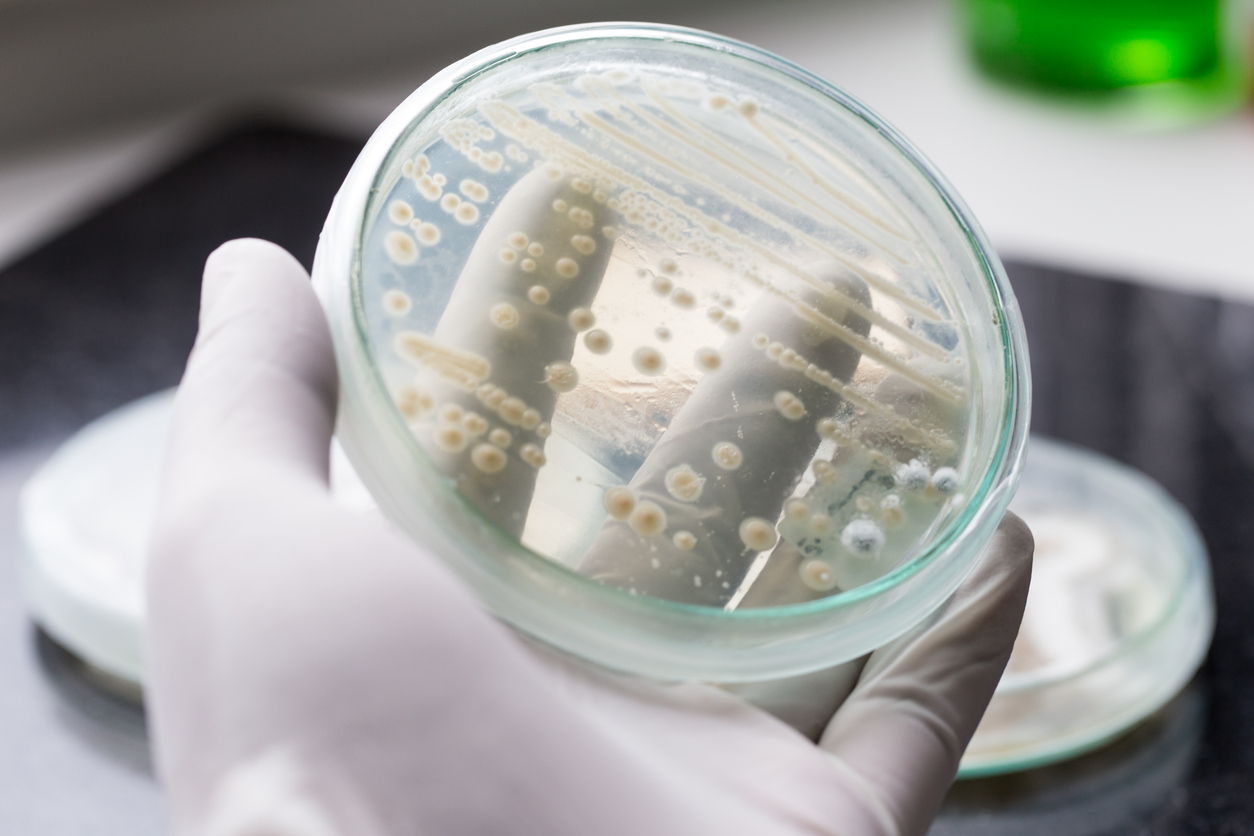This barely treatable pathogen is popping up all over the world — and scientists don't know how to stop it


A free daily email with the biggest news stories of the day – and the best features from TheWeek.com
You are now subscribed
Your newsletter sign-up was successful
Scientists have only known about the Candida auris pathogen since 2009, but it's already rocking the medical world.
This deadly yeast is resistant to antibiotics. It's more infectious than Ebola. And it's popping up everywhere.
Antibiotic-resistant bacteria are a common story, Wired notes in an article detailing C. auris' rise. But this is a yeast — something so common and relatively harmless in humans that there isn't much research on how to treat them. There are hundreds of antibiotics out there to try on new bacteria, but only a handful of antifungal drugs — none of which treated C. auris when it first appeared as an ear infection in 2009.
The Week
Escape your echo chamber. Get the facts behind the news, plus analysis from multiple perspectives.

Sign up for The Week's Free Newsletters
From our morning news briefing to a weekly Good News Newsletter, get the best of The Week delivered directly to your inbox.
From our morning news briefing to a weekly Good News Newsletter, get the best of The Week delivered directly to your inbox.
Doctors only had one option to treat that initial infection: a set of toxic, IV-only antifungals that leave patients with intense fevers and chills, Wired says. And then two more C. auris infections occurred, in two separate countries, and both in patients' bloodstreams. This time, the infection didn't respond to the toxic treatment, and its 1-year-old and 74-year-old victims died.
Researchers quickly realized how devastating a C. auris outbreak could be. The CDC warned of its global rise in June 2016, but that didn't stop at least 340 cases from popping up in the U.S. as of May 30. All the American outbreaks stem from different sources: a South Asian strain in Oklahoma and Connecticut; a South American strain in Massachusetts and Florida. Up to 60 percent of those infected around the world have died, per Wired.
Without an effective treatment, doctors resort to old-school methods of isolating patients and disinfecting hospital rooms with bleach. C. auris' spread was only stopped in extremely hygienic facilities, per the CDC. It recommends washing your hands to avoid this superbug, which you can read more about at Wired.
A free daily email with the biggest news stories of the day – and the best features from TheWeek.com
Kathryn is a graduate of Syracuse University, with degrees in magazine journalism and information technology, along with hours to earn another degree after working at SU's independent paper The Daily Orange. She's currently recovering from a horse addiction while living in New York City, and likes to share her extremely dry sense of humor on Twitter.
-
 One great cookbook: Joshua McFadden’s ‘Six Seasons of Pasta’
One great cookbook: Joshua McFadden’s ‘Six Seasons of Pasta’the week recommends The pasta you know and love. But ever so much better.
-
 Scientists are worried about amoebas
Scientists are worried about amoebasUnder the radar Small and very mighty
-
 Buddhist monks’ US walk for peace
Buddhist monks’ US walk for peaceUnder the Radar Crowds have turned out on the roads from California to Washington and ‘millions are finding hope in their journey’
-
 Blue Origin launches Mars probes in NASA debut
Blue Origin launches Mars probes in NASA debutSpeed Read The New Glenn rocket is carrying small twin spacecraft toward Mars as part of NASA’s Escapade mission
-
 Dinosaurs were thriving before asteroid, study finds
Dinosaurs were thriving before asteroid, study findsSpeed Read The dinosaurs would not have gone extinct if not for the asteroid
-
 SpaceX breaks Starship losing streak in 10th test
SpaceX breaks Starship losing streak in 10th testspeed read The Starship rocket's test flight was largely successful, deploying eight dummy satellites during its hour in space
-
 Rabbits with 'horns' sighted across Colorado
Rabbits with 'horns' sighted across Coloradospeed read These creatures are infected with the 'mostly harmless' Shope papilloma virus
-
 Lithium shows promise in Alzheimer's study
Lithium shows promise in Alzheimer's studySpeed Read Potential new treatments could use small amounts of the common metal
-
 Scientists discover cause of massive sea star die-off
Scientists discover cause of massive sea star die-offSpeed Read A bacteria related to cholera has been found responsible for the deaths of more than 5 billion sea stars
-
 'Thriving' ecosystem found 30,000 feet undersea
'Thriving' ecosystem found 30,000 feet underseaSpeed Read Researchers discovered communities of creatures living in frigid, pitch-black waters under high pressure
-
 New York plans first nuclear plant in 36 years
New York plans first nuclear plant in 36 yearsSpeed Read The plant, to be constructed somewhere in upstate New York, will produce enough energy to power a million homes
